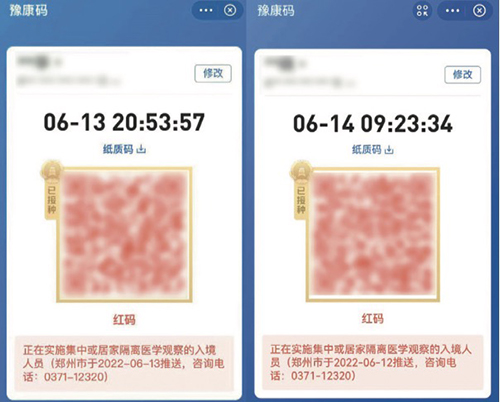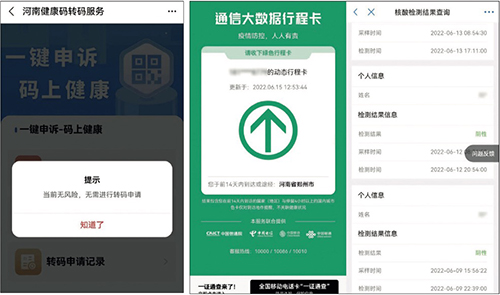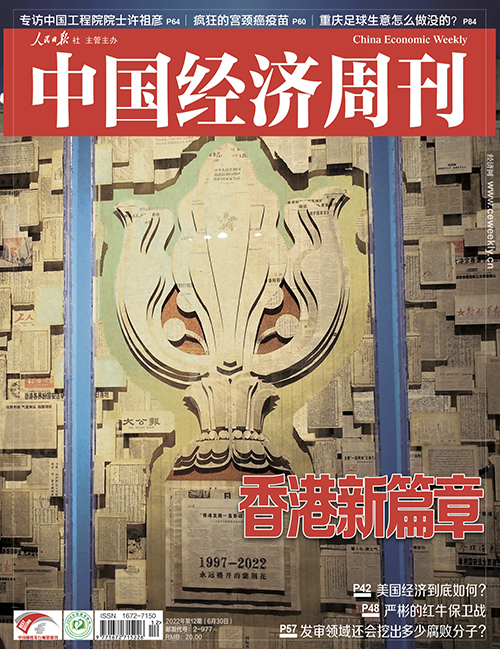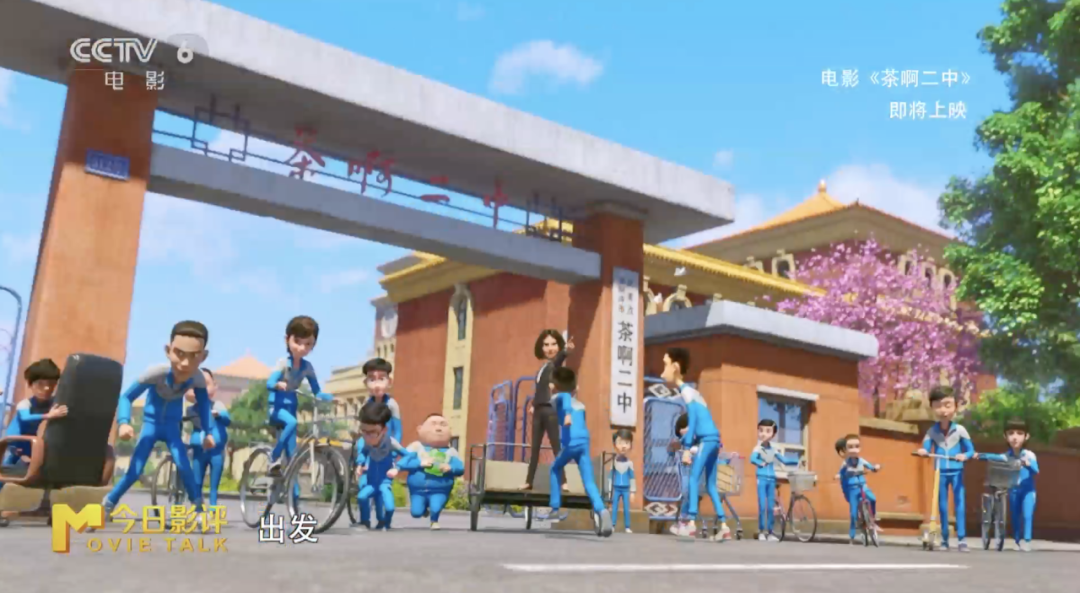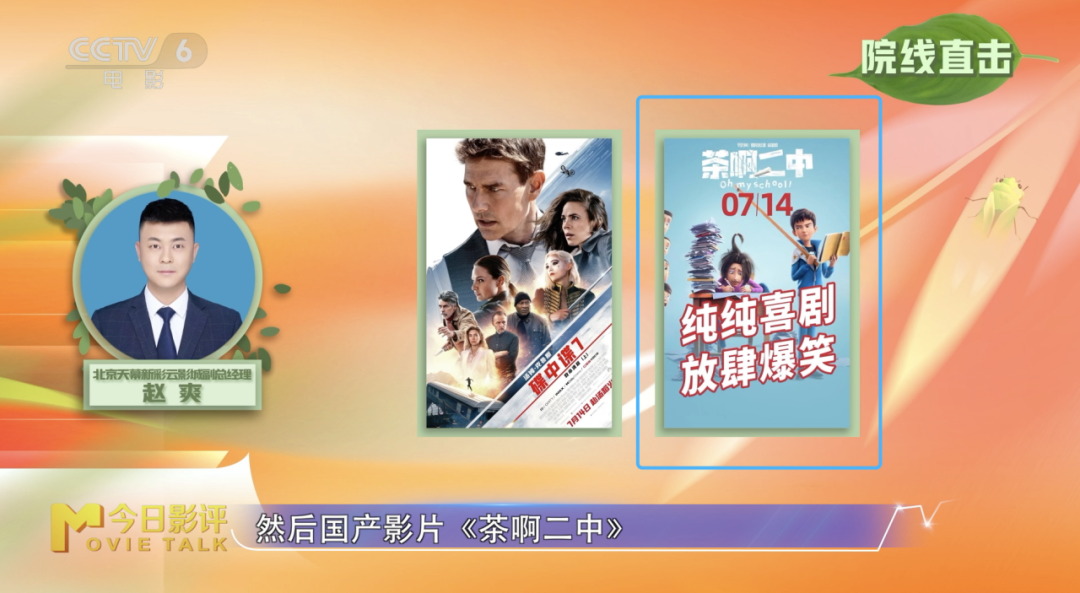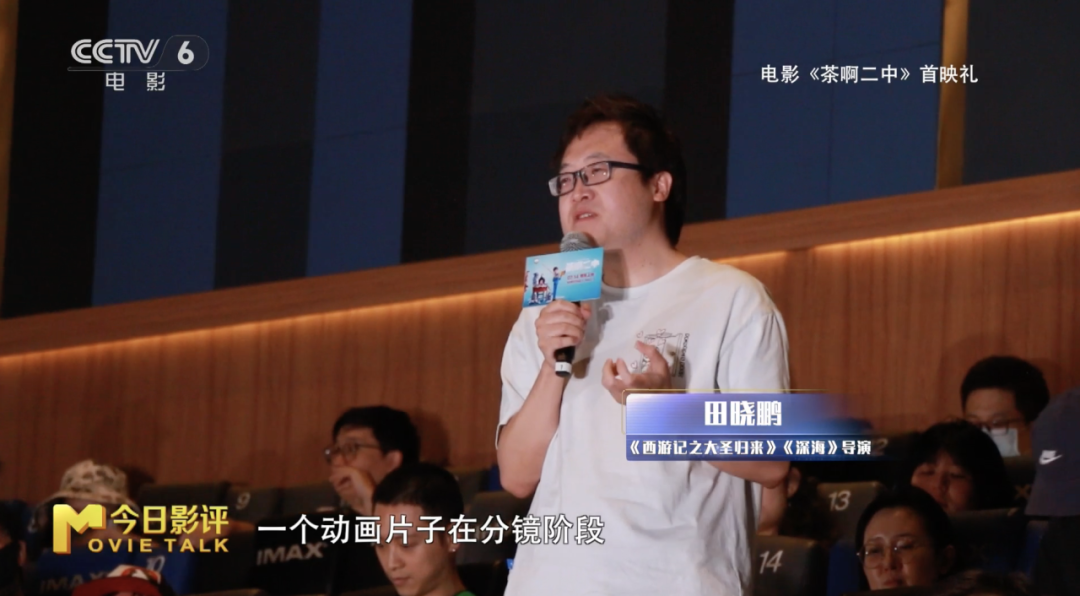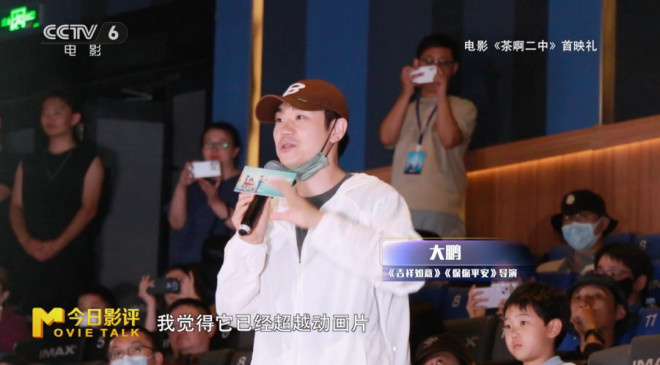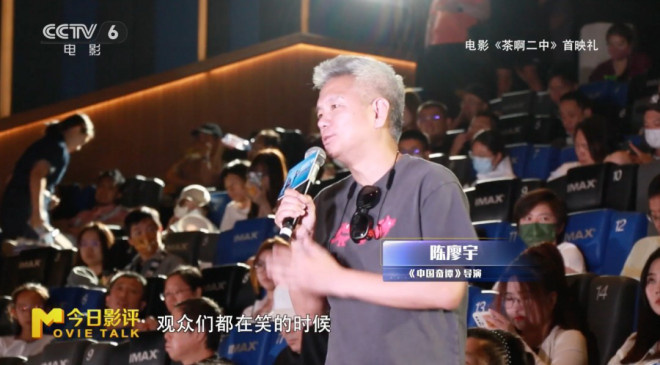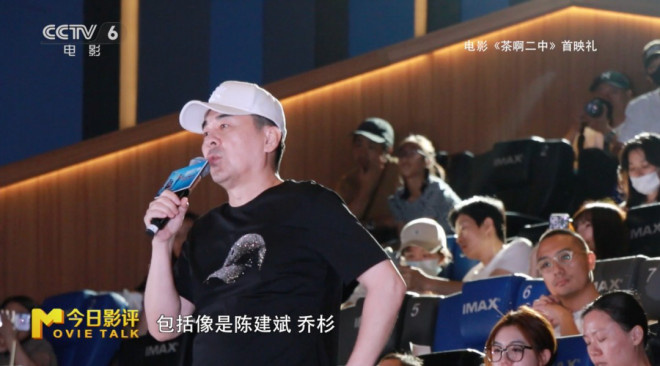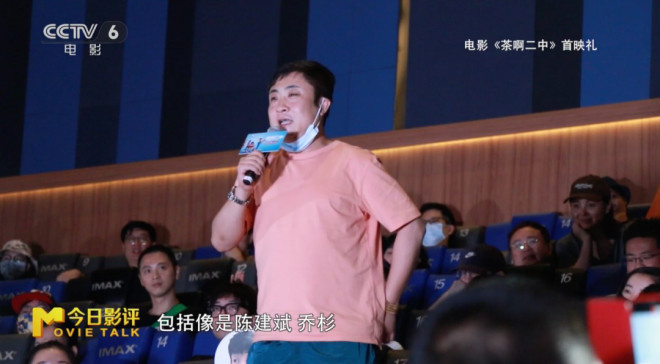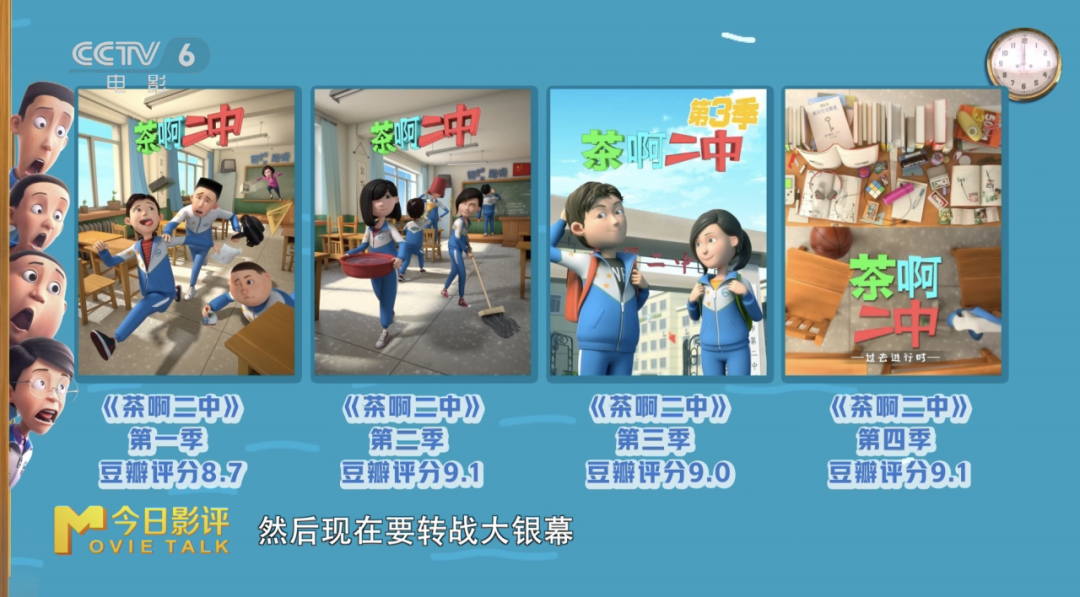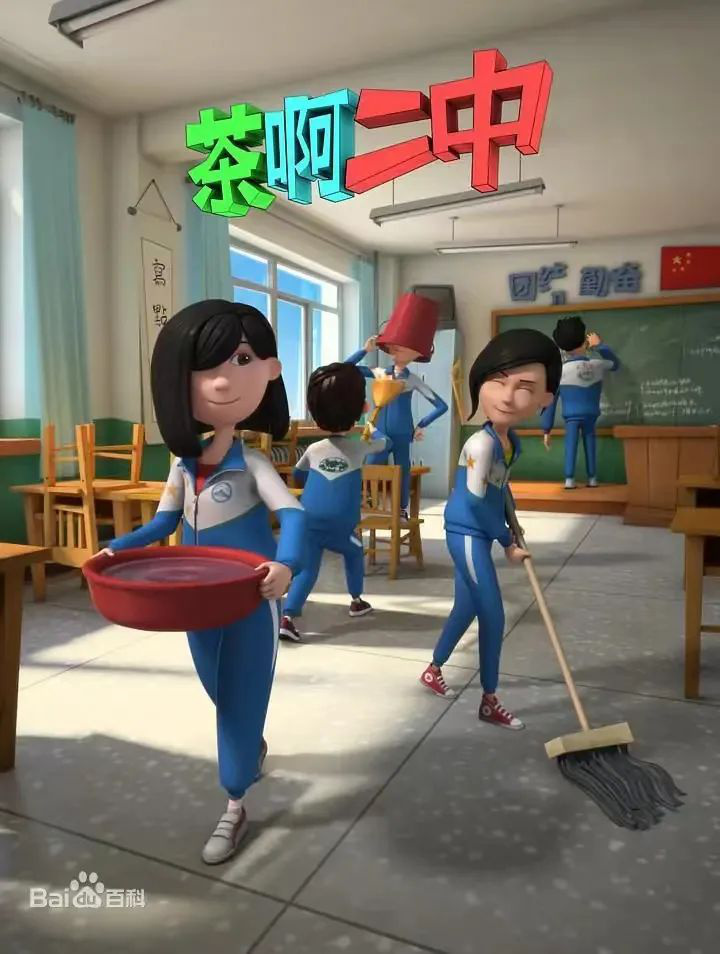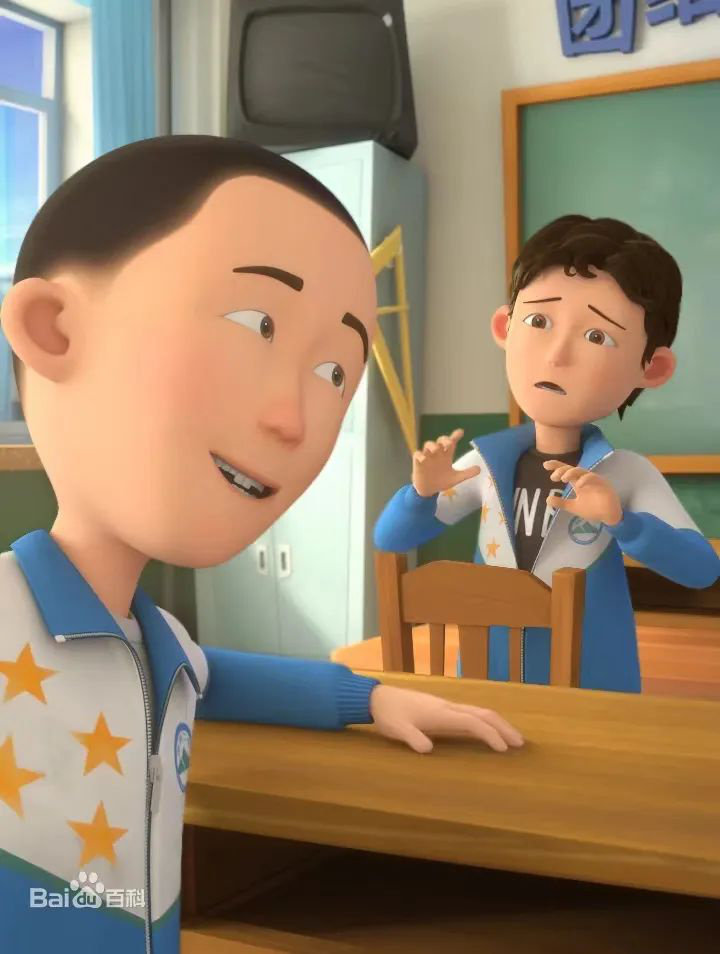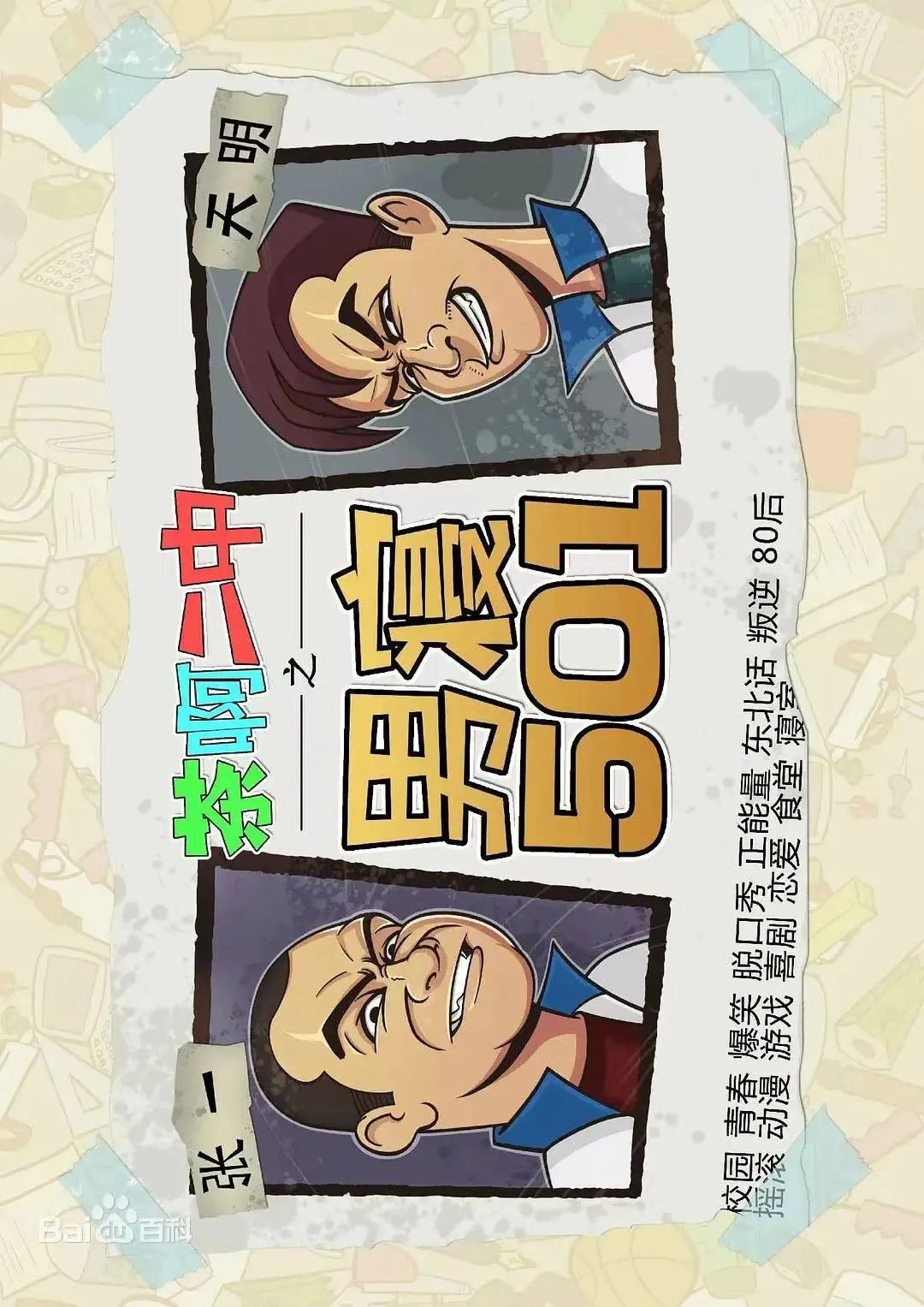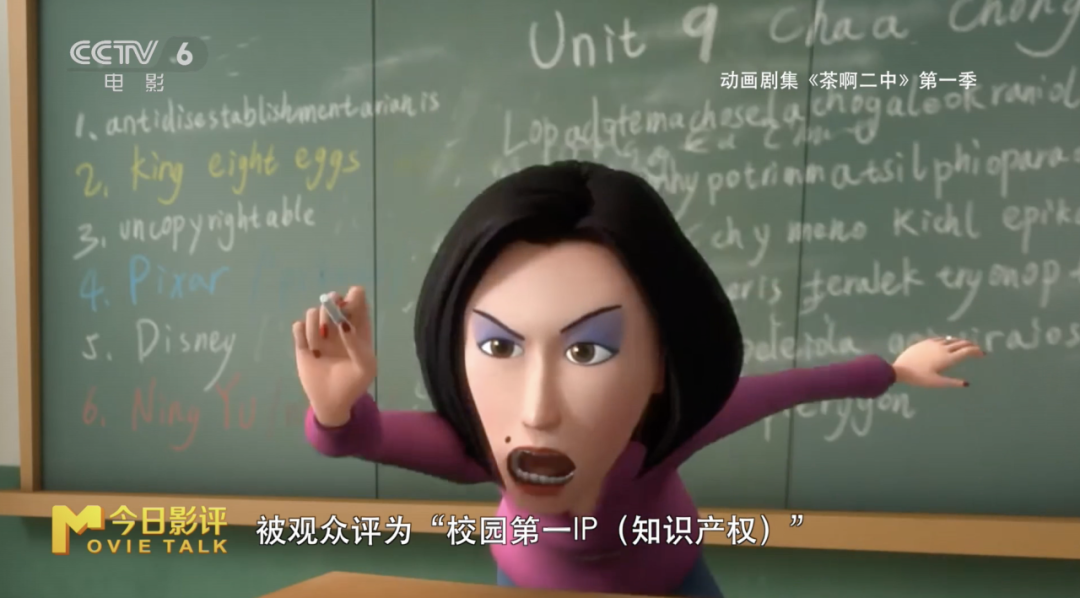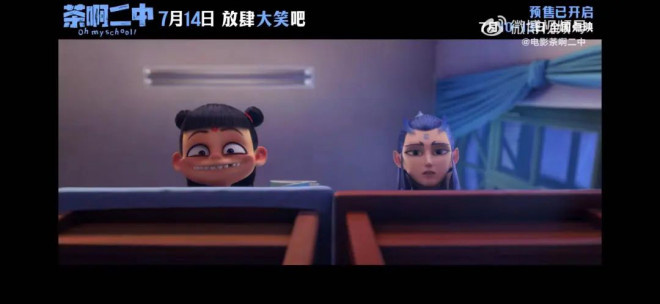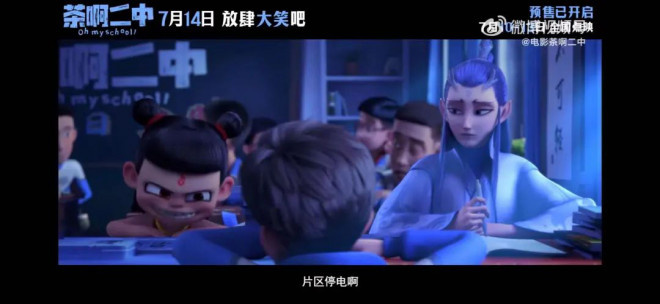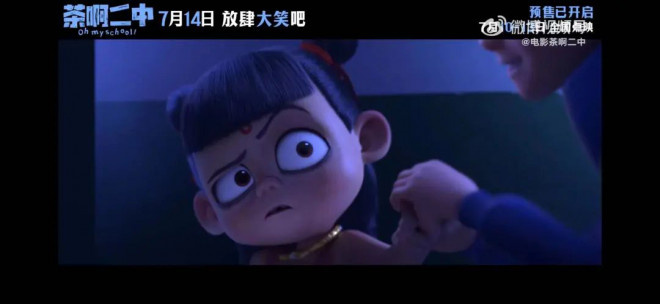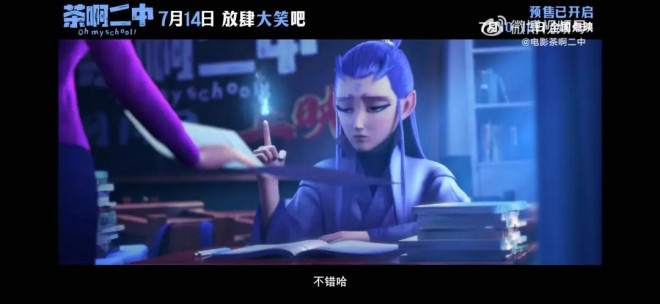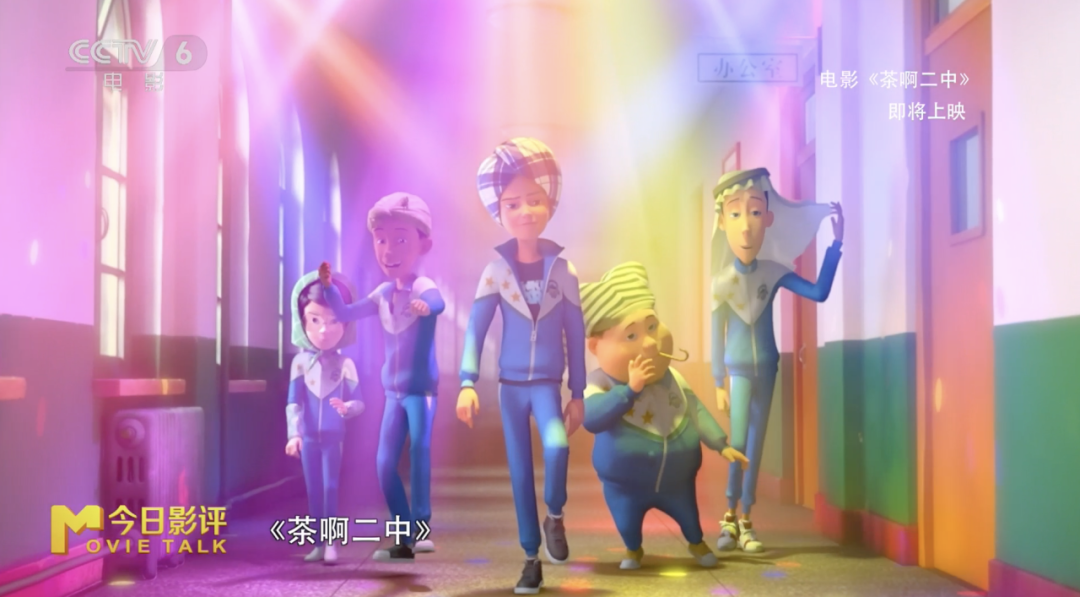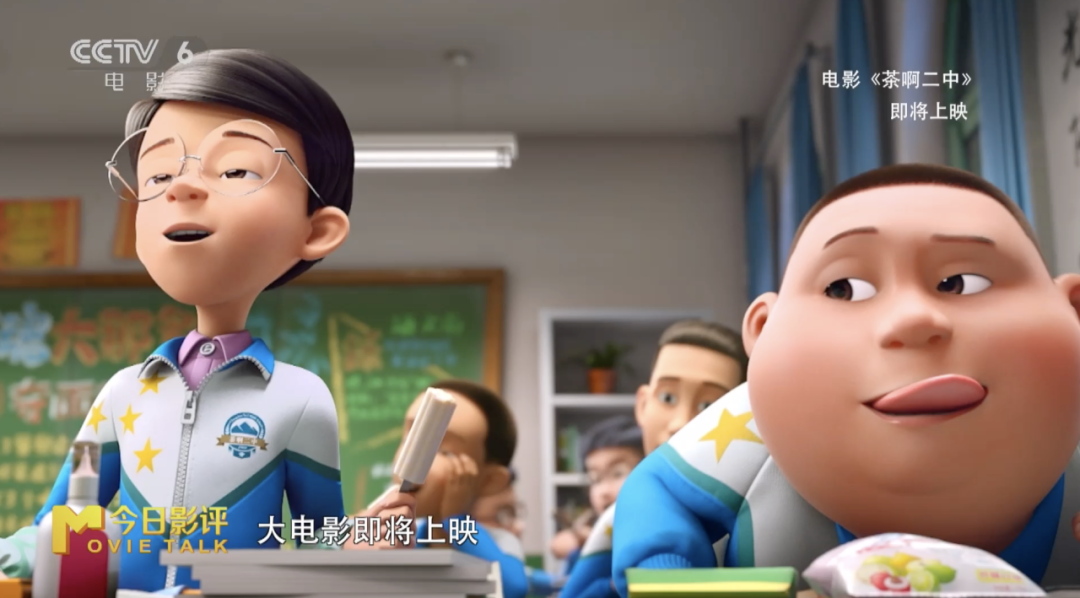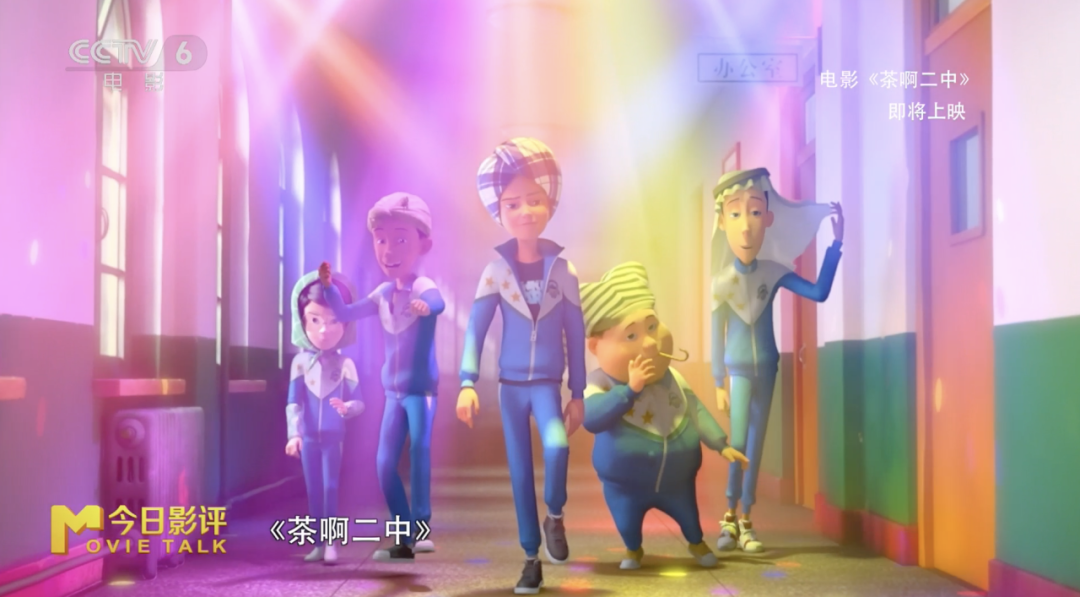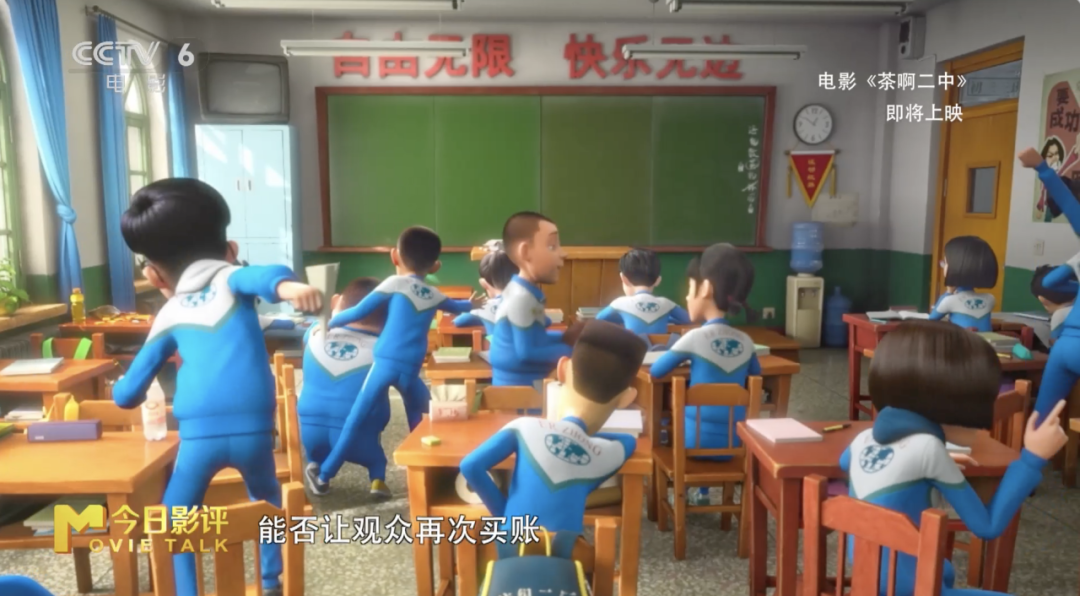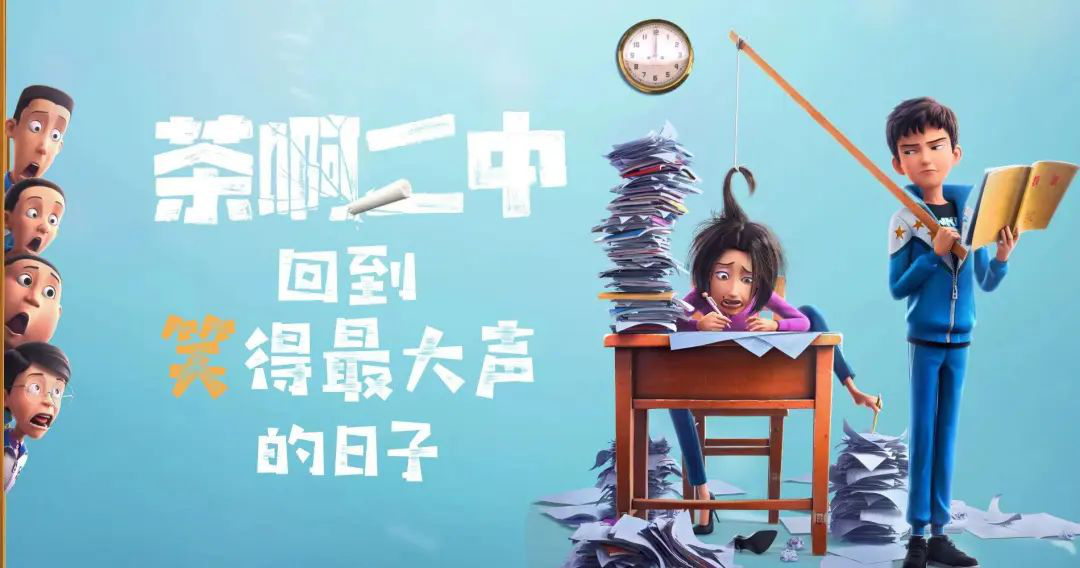How many steps does it take to do a good job in movie word-of-mouth marketing?

Author/Guo Jian
For 13 consecutive days, the box office has exceeded 100 million!
On February 21st, the Spring Festival box office counterattacked, and on February 23rd, it surpassed Avengers 4 to become the 4th in the total box office list of Chinese movies. The road of Hi, Mom’s daily box office breaking through 100 million continues.
With a high reputation, this Jia Ling director’s first film, with a beautiful posture, completed the counterattack in the Spring Festival file, which is a well-deserved dark horse this year.
From Operation Red Sea in 2018 to The Wandering Earth in 2019, and then to Hi, Mom this year (hereinafter referred to as "Li Huanying"), there have been examples of arranging films against the trend by word of mouth for several consecutive years, and finally catching up with the box office.
In this "special Spring Festival" this year, under the influence of epidemic situation, the adjustment of attendance rate, the increase of movie prices all over the country, and the record-breaking pre-sale of 900 million yuan in Detective Chinatown 3 have created many uncertainties. "Li Huanying" completed its comeback through word of mouth, which shows that word of mouth has become a strong guarantee for the box office of the film in the big period.
In the previous interview, some film marketing practitioners clearly expressed the concept of "Weibo is a word of mouth" to Xiaoyu. Weibo’s important role in online word-of-mouth marketing of films is irreplaceable. "If you hit the user in the hot search, you can counterattack."
Especially this year, Weibo officials have further increased the flow support and activity operation for the contents of Spring Festival files. In this natural public domain discussion pool and the birthplace of hot spots, the pre-screening creative New Year greetings can detonate fans, call for refusing to steal photos, and also trigger discussions. After the release, the process of many film critics and creators arguing with each other has provided a fertile ground for the film to create word-of-mouth marketing.
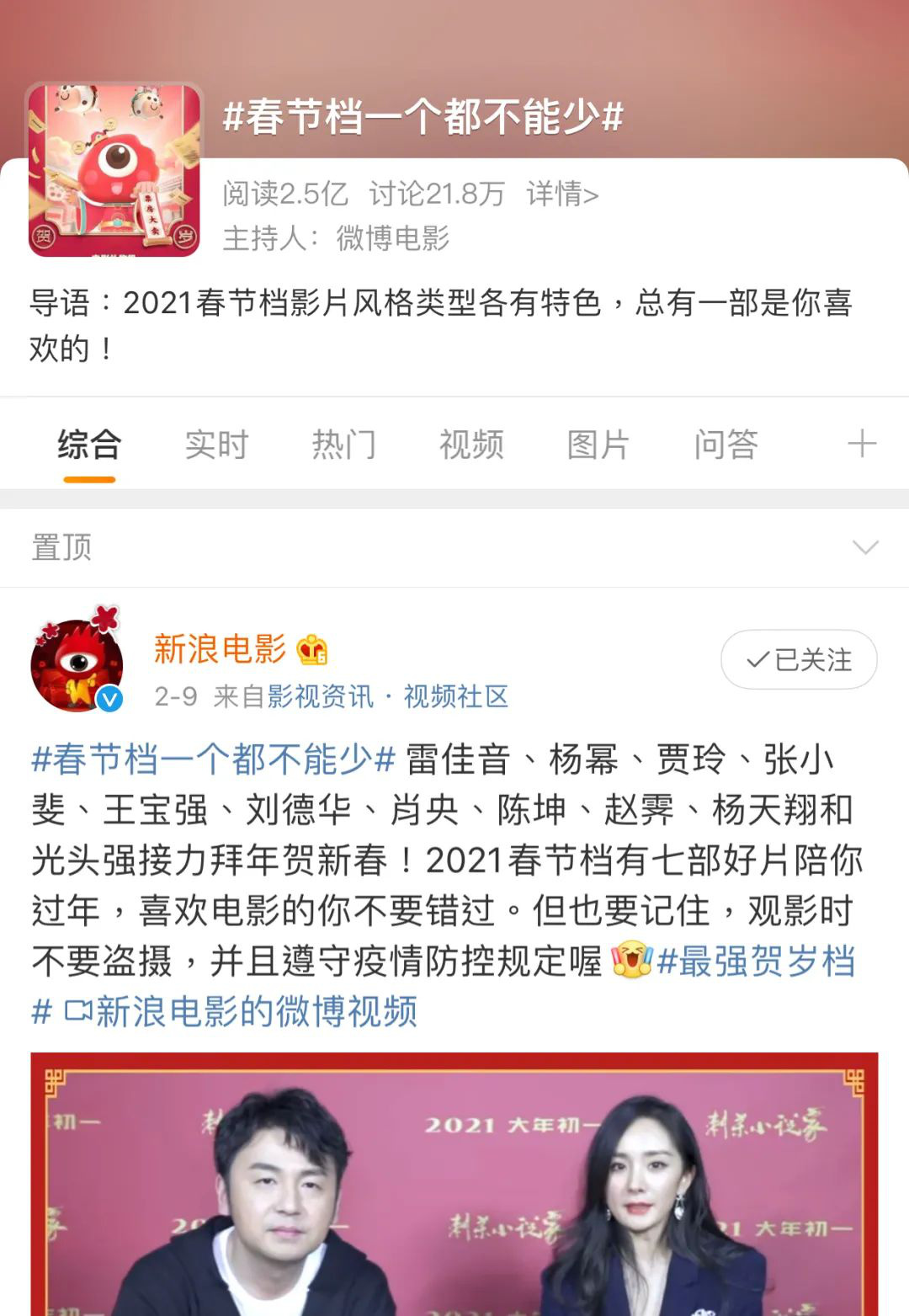
So how many steps does it take for filmmakers to do word-of-mouth marketing in Weibo?
Before screening: bury hot spots, attract attention, tailor-made fermentation scheme to ensure pre-sale
"Life and death will be decided on the first day", which was expressed by many people in the industry when talking to film marketing practitioners in small entertainment. Even in a big schedule like the Spring Festival, it can increase the word-of-mouth fermentation time and box office fermentation space of high-quality films to a certain extent, and provide more opportunities for high-word-of-mouth films. The work before screening is still very important.
"The most important thing in the Spring Festival is the user’s attention grabbing. Even films that are confident in their own reputation need to ensure the basic disk of the first two days, so that users can have memory points and discussion points, in order to provide a breakthrough for subsequent fermentation. Otherwise, if it is not dominant in the early stage, it will be easily influenced by other word-of-mouth films and greatly reduce its ceiling. "
Therefore, in order to ensure the sound volume on the first day of release and "ignite the lead" for the subsequent rise or counterattack, the film either needs to promote the pre-sale of the film as much as possible before the screening by means of marketing, or do a good job of word-of-mouth fermentation by means of large-scale screening, and put the word-of-mouth marketing link first.
In previous years, many high-quality films adopted the latter model, such as The Wandering Earth and Ne Zha in 2019, which all completed the first wave of word-of-mouth communication with the help of pre-screening. Due to the epidemic situation this Spring Festival, except for New Gods: Nezha Reborn, which started a small-scale screening, the other films did not take this action, but focused on how to attract pre-sales with the help of star effect and the theme concept of film packaging with content materials.
On the opening day of the pre-sale on January 29th, the activity of "Weibo invites you to see a movie" launched by Weibo also "blew the east wind" for the filmmakers, which directly boosted the volume of the pre-sale of movies. Then, from February 1st to 6th, a single-film special was launched, which combined the main creative voice+welfare release+material dissemination gameplay, and it was precisely on the star effect and the concept of movies that the article was fully written.
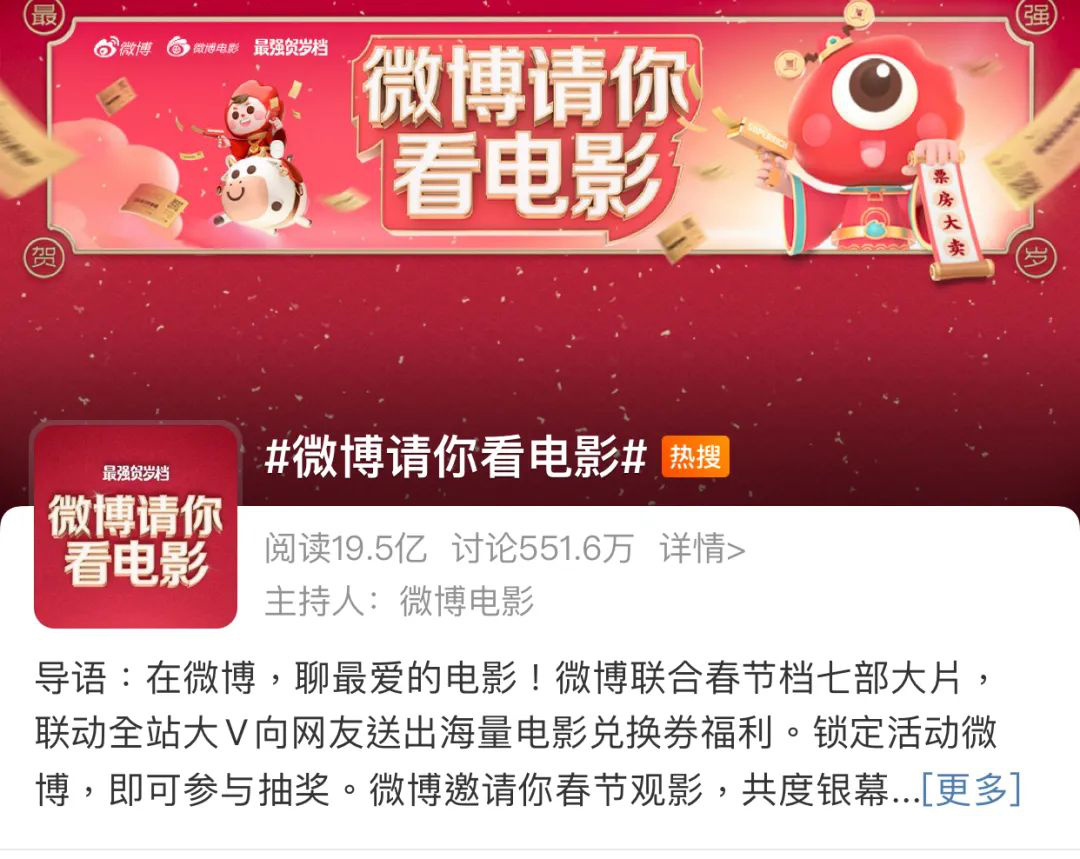
Weibo’s powerful star resources and open square attributes have become the key points that must be grasped in the pre-screening marketing stage. Detective chinatown and Hello Li Huanying made full use of the soil in Weibo, combined with their own characteristics to build momentum and embed topics, and became the top two pre-sales of Spring Festival stalls, forming a solid first echelon.
We can find that the emphasis of "Tang Tan" before screening is feelings+family fun, and that of "Li Huanying" before screening is more focused on emotion+comedy.
As the previous work has laid a strong IP foundation, Detective Chinatown 3 has made great strides in public awareness, and the focus before screening is on awakening the memory of netizens. Weibo Film launched the # Tang Exploration Scene Imitation # Competition, and jointly created Haoran Liu and Wang Baoqiang to lead the release of customized mixed-cut videos of Tang Exploration Universe.
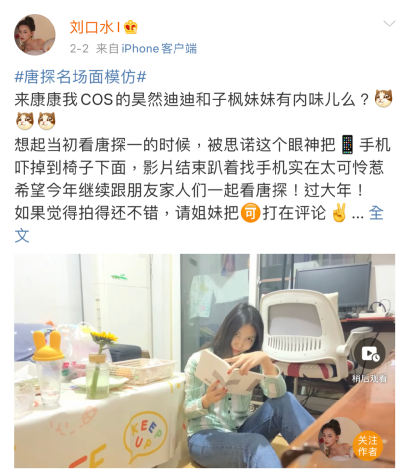
These marketing tactics have a clear purpose, and ordinary users have a high degree of participation, and the ugc content that imitates the roles of Sinuo and Song Yi in the previous works also connects users’ memories of exploring the universe in Tang Dynasty, further triggering netizens’ speculation about the suspense direction. The pre-sale of "Tang Detective 3" was far ahead, breaking through 100 million on the first day, and finally breaking through 900 million, achieving a record-breaking result.
At the other end, Hi, Mom starred in the star+mode in Weibo, and Jia Ling’s circle of friends went out to promote it. Jia Ling and Shen Teng, the national partners in comedy, cooperated on the big screen for the first time, which attracted the audience and was also the marketing focus in the pre-screening stage. Based on Weibo’s film operation ability, its side derivative materials have been searched for more than ten times, among which Jia Ling and Shen Teng are the laughingstock, which strengthens netizens’ understanding of the strong comedy positioning of the film.
In addition, in the pre-screening stage, "Li Huanying" completed a large number of emotional topics embedded in the Weibo. Weibo’s films, with material communication, planned and initiated topic activities such as # I and my mother’s best friend photos # and # If I talk to my mother when I was young #, which have a strong connection with the film content, emphasized the emotional emphasis of the film on family, especially maternal love, and strongly combined the film image with the daily concept of "mother". Hi, Mom’s pre-sales reached 170 million, ranking second.
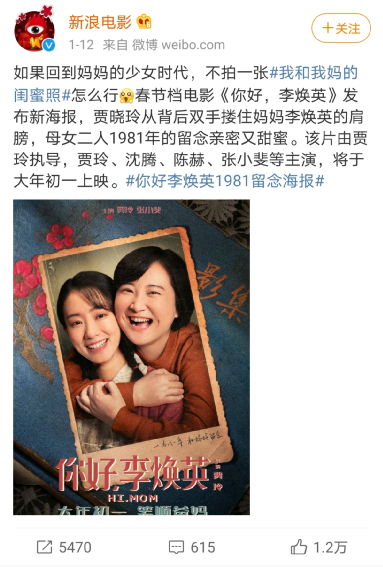
In addition to these two films, the rest of the Spring Festival films also have a clear pre-screening emphasis. Taking A Writer’s Odyssey as an example, the pre-screening emphasis is to strengthen the concept of "visual effect" of the film through the rhythmic release of materials, thus completing the targeting and coverage of the audience.
On the whole, word-of-mouth marketing on the front line should focus on two directions in combination with the characteristics of Weibo’s stars and the public domain: to make clear the main characteristics of the film by brushing the face with star materials and seize the attention of users; Through topic activities, we can promote the masses to increase their interest in watching and trigger deeper content expression.
In the early stage of release: build a reputation, make a topic, and create a directional hot blasting film.
Under normal circumstances, with the release of the film, you can get more intuitive word-of-mouth feedback in the first two days. In the Spring Festival file, this process will be further compressed, and in the first day, word-of-mouth discussions about the film will be overwhelming.
This is the most important opportunity for films with word-of-mouth advantages. It is necessary to achieve "comprehensive fermentation" online with the help of the discussion and topic assistance of the people who have watched the movie, that is, to achieve word-of-mouth fission communication first, then achieve the topic detonation effect, and finally help the film counterattack.
At this stage, it is necessary to make good use of Weibo’s social media platform effect and tap strong content points; Then, with the help of its hot search influence, it will achieve the spread of breaking the circle; Finally, through its mature vertical ecology, the detonation and transformation of each circle are achieved.
Looking back at the dark horse Hi, Mom in this year’s Spring Festival, it was with the help of the initial stage of the release that the word-of-mouth fermentation was completed. Through the centralized word-of-mouth diffusion and one-stop communication in Weibo on the second and third days of the New Year’s Day, the film arrangement rose all the way, and the box office counterattack was completed in the fourth day, and the film arrangement counterattack was reached in the fifth day.
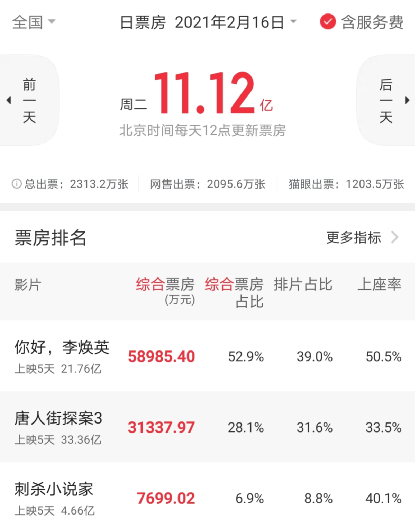
According to the statistics of Entertainment, Li Huanying’s hot search in Weibo was 4 times, 12 times and 11 times respectively on the first day, the second day and the third day of New Year’s Eve, and all the hot search topics reached the first place within three days, and continued to be on the list for a long time, and there was a significant concentrated outbreak in the last two days. Accompanied by this, the arrangement of Li Huanying rose from 20.6% in Grade Two to 26.5% in Grade Three, and even to 35% in Grade Four.
Taking stock of the types of these hot topics, Weibo basically digs them in three aspects: the creative direction, the plot direction and the emotional direction.
It is the best topic rule under the attention economy to create content and focus on stars. Li Huanying, on the other hand, shows a clear understanding of content and changes in stage play.
Unlike "Jia Ling and Shen Teng", the topic of this stage shifted to "Jia Ling and Zhang Xiaofei", and many stars such as # Zhang Xiaofei Acting #, # Jia Ling Zhang Xiaofei’s Immortal Friendship # and # Zhang Xiaofei’s My Treasure # were obviously more in line with the content of the film, which helped the audience who watched the film to participate in more content-oriented discussions.
Plot-to-topic was born, and hot searches for plots such as # Mom used to know everything #, # Hello Li Huanying Details # and # Li Huanying bought a convertible for her mother at the end further stimulated the audience to dig up the details of the film and express their emotions, which gave birth to the emergence of subsequent emotions to the topic.
# See Hello, Sequel of Li Huanying #, # See Hello, Li Huanying, Don’t wear eye makeup #, # See Li Huanying crying his mask wet # and other movie-watching feeling topics further amplify the touching nature of the film, and directly ignite the curiosity of those who didn’t watch the movie: What kind of movie is so crying? Why can comedy movies be so touching?
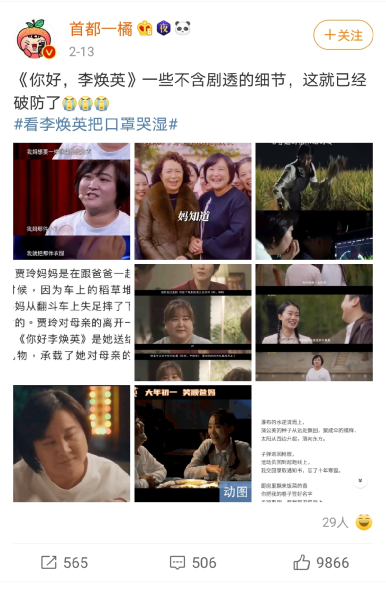
With the help of Weibo’s hot search, users’ cognition of "Li Huanying" changed from comedy movies and jokes before screening to moving movies and crying after screening, which virtually completed a deeper hit on users. This cognitive change is natural and stable, and it also keeps the word-of-mouth fermentation of the film heating up.
At the same time, Li Huanying, with the help of a series of operation activities initiated by Weibo after its release, has promoted the expansion of the audience. # How long has it been since you hugged your mother # and other topic activities have further strengthened the connection between the film and the real mother, and the launch of the # Parents Dressing Contest # activity has amplified the elements of the film in the 1980s. All this virtually conveys the concept of "taking parents into the cinema to watch Li Huanying together" to users, and promotes the continuous extension of the audience of the film.
Observing The Crowd in the third echelon in the pre-sale stage, with the help of word-of-mouth marketing in Weibo at the early stage of release, the situation that the film was squeezed was effectively improved. On the third day of New Year’s Eve, with the further fermentation of its word of mouth, the film director Rao Xiaozhi made a sound in Weibo. Subsequently, # Crowded Director made a sound for arranging films # and ranked ninth in hot search, which enhanced the topic attention of this film. Then # Crowded Word of Mouth # boarded hot search, which made its film arrangement and box office rise in the second half of the schedule.
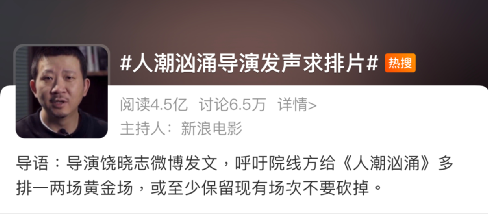
In addition, the film can further expand the audience with the help of Weibo’s mature vertical segmentation system, and become a design aesthetics blogger.
@ Cold Dog makes A Writer’s Odyssey’s creative model, and @ Big Sheep BOBO’s cartoon portrait of "Li Huanying" becomes popular, so users in this field can learn about the film information in their own fields of concern.
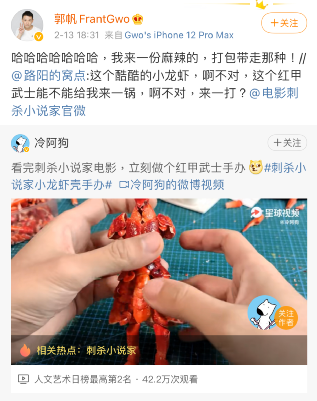
Through the case of Spring Festival movies, it can be found that the first release of the film is the most critical period for word-of-mouth marketing. With the detailed content discussion and the release of word-of-mouth topics, two things need to be done in Weibo at this stage: First, with the help of the platform’s one-stop topic fermentation ability, accurately penetrate the user base; The second is to expand the film coverage group with the help of Weibo’s operation activities and vertical subdivision ecology.

In the later stage of release: it is the key to create the atmosphere, protect the long tail and continue the ip value.
After the topic was embedded before the screening, the topic exploded in the early stage of the screening, and the focus of the later stage of the screening was to maintain the heat. After all, the long tail effect also has a great influence on the box office.
At this stage, the focus is on creating an atmosphere for the whole people to watch movies, making word-of-mouth films a social pass, and attracting people who have not watched movies to enter the cinema for the purpose of "participating in social discussions".
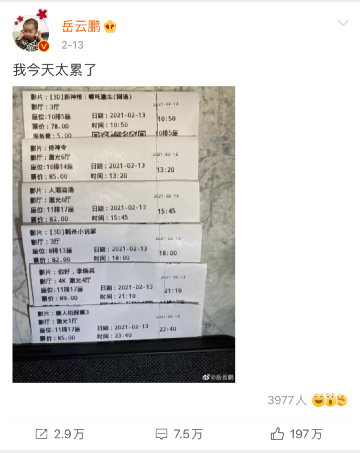
At this time, what needs to be grasped online is Weibo’s strong social effect. Through activities to create hot spots, social topic derivation and other programs, word-of-mouth films are well preserved in terms of national degree and topic degree.
On February 11th, Weibo officially launched the Spring Festival film criticism contest for the whole station and the commentary contest for film bloggers, which is an opportunity for the majority of filmmakers to harvest the "long tail effect", which can realize the word-of-mouth fermentation of movies and generate more hot spots after the film is released. Among the star film critics invited by Weibo, Yi Nengjing supported his sister group Wan Qian’s "Crowd" with film reviews, which helped the film to make a turnaround in film arrangement and word of mouth.
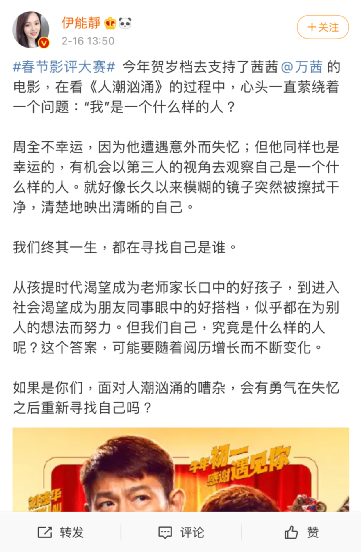
Taking Hi, Mom as an example, following the participation of creative artists in topics and activities, a large number of non-creative stars joined the movie-watching army. Viya sent a long review of Li Huanying, and asked # Viya to send a long article about Li Huanying # to reach the top of the hot search, which won 730 million readings. Huang Xiaoming made a film review to take photos of his mother, and Bai Jingting made a clever reply to netizens’ comments … The emotional expression of tap water in these circles has been on the hot search in Weibo many times, which further triggered the upsurge of the whole people’s participation in watching.
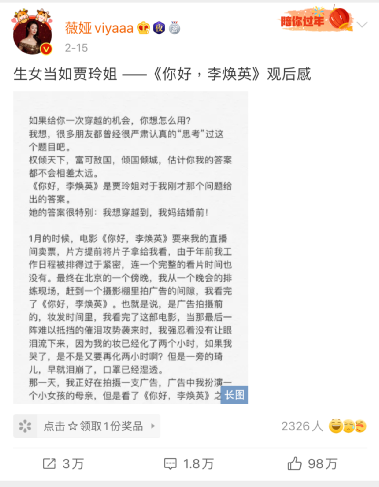
Weibo is also inviting more creative people to create new social discussion points. On the eighth day of the Lunar New Year, Sina Entertainment invited Jia Ling and Zhang Xiaofei to start a live online broadcast. The total viewing volume of this live broadcast exceeded 10 million, and the total interaction volume exceeded 1.8 million, which gave birth to a large number of new topics. During the activity, the discussion volume reached 300,000+,and the hot search was on the list for more than 7 times. Zhang Xiaofei’s interesting response to a large number of netizens’ "I can’t afford it" even soared to the top of the hot search.
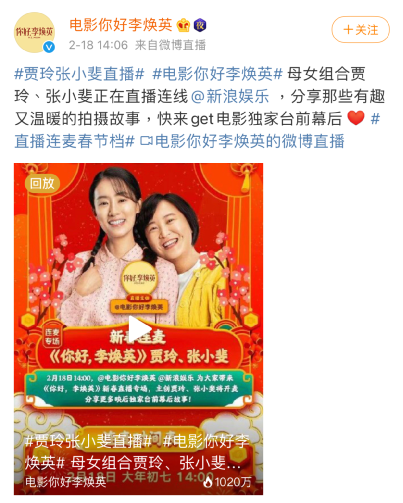
At the same time, with the rising of the box office of Li Huanying in the later period, Jia Ling became the first female directors to enter the top ten of the box office list, and new topics such as the debut movie "Big Bang" enabled Li Huanying to maintain diversified social discussions, which helped the film achieve the high-quality long tail effect of box office breaking 100 million for 13 consecutive days.
Weibo’s strategy for IP films is different from that of Li Huanying. In the later stage of release, he further strengthened the concept of IP universe and paid more attention to attracting the audience to pay attention to the subsequent development and serialization of the films.
Taking Detective Chinatown 3 as an example, the later operation activities focused on extending the influence of "Tang Detective IP", fully combining the types of suspense crimes in the film, the details in the film and the eggs at the end, which triggered a series of discussions such as the audience’s routine analysis of the role, the analysis of the world view of the film, and the subsequent plot prediction.
Through the participation of the main creator and the discussion of the film critics, topics such as # What is Qin Feng’s father’s identity #, # Is Sinuo Q#, # Tang Tan 3 Reasoning Line #, # Tang Tan 4 London #, # Haoran Liu Q in my hand # have been listed on the hot search. Such a strong sense of "to be continued" not only makes the exploration of the universe by Tang Dynasty more concrete and stereoscopic in Weibo, but also arouses the audience’s expectation for the follow-up content, and also leads to the discussion of film serialization and industrialization, which is of far-reaching value to the industry.
It can be seen that the key to the film’s later release is to constantly explore new topics to ensure the long tail effect. Weibo, a strong social platform, should be used to create a sense of social currency for films, and at the same time help the diversified development of the IP film universe, and create an atmosphere for discussion among the whole people. In suspense, it is necessary to do enough guidance.
On the whole, if a film wants to do a good job of word-of-mouth marketing online, it needs to make use of Weibo’s key words of publicity, media and sociality, and combine its own characteristics to ferment the topic at all stages. As long as we can grasp the characteristics of the film that most impress the audience and enlarge it in different links, high-quality films can shine.

